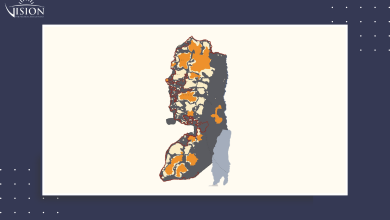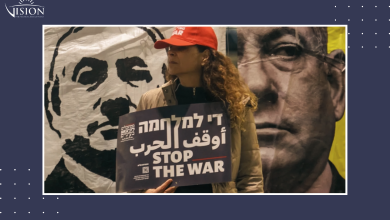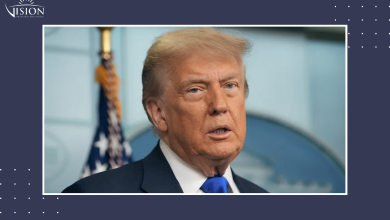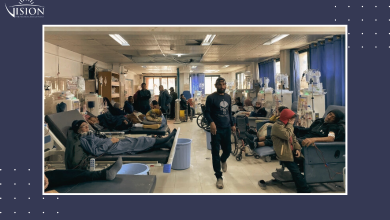New Horizons and Opportunities for the Palestinian Cause
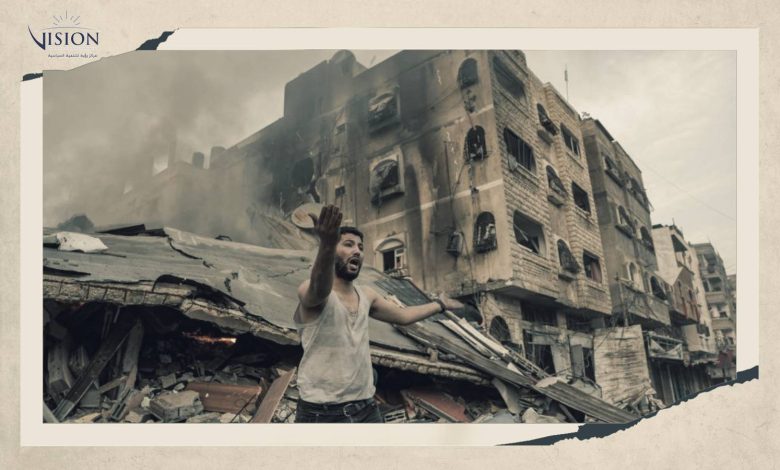
Ahmed Atawna
The “Al-Aqsa Flood” battle has unfolded new horizons and avenues for the Palestinian cause, revealing multifaceted dimensions of the Palestinian issue and the pathways for national resistance and opposition to colonialism and Zionism. Zionism, initially an ideology and subsequently a movement, has been instrumental in the establishment of a political entity for Jews in Palestine.
Despite the severity of the situation and the magnitude of suffering resulting from the genocidal war waged by the occupation against the Palestinian people in the Gaza Strip, and notwithstanding a general sentiment of inadequacy and an inability to curb the occupation’s brutality and fascism, this conflict—regardless of its outcome—presents a historic opportunity. It offers a chance for Palestinians and the political factions, as well as activists, to confront the Zionist project and to enhance the visibility of the Palestinian cause, rallying support and endorsement on various levels, including:
Firstly, reasserting the global dimension of the Palestinian issue as a matter of liberation, justice, and self-determination for a people subjected to occupation for over a century. This is particularly significant after the noticeable decline in global attention and support for the Palestinian cause over the past decades. This decline is a result of various policies—by multiple actors—that attempted to confine the Palestinian issue within a purely Palestinian context, stripping it of its Arab and Islamic dimensions. The substantial popular support and shifts in global public opinion—prompted by this war, whether due to the defense of universal and humanitarian values such as freedom and justice, or the rejection and confrontation of injustice, criminality, fascism, and genocide practiced by the occupation against Palestinians—are profound enough to suggest that the Palestinian cause has now become an international public issue. It concerns many countries and peoples worldwide, not limited to the Arab and Islamic world. Indeed, some of these entities have, through their stance and actions, become closer allies to the Palestinian people and their cause than any Arab state.
Today, the state of South Africa and its people are closer and more profoundly connected to Palestine than many geographically neighboring states that share historical, religious, and national ties. Similarly, numerous nations and peoples around the globe are more intimately engaged and sympathetic to the struggles and rights of the Palestinian people than many in the region.
Secondly, for the first time in its history, Israel finds itself in the dock before international justice. Israel has enjoyed legal protection, in addition to political, military, and economic backing from powers dominating the international system. However, the atrocities committed during this conflict have exceeded the Western world’s capacity to continue providing legal immunity to the occupation. Israel now finds itself accused before the most significant international legal platform—the International Court of Justice—and will soon face charges at the International Criminal Court, as well as in numerous national courts around the world.
This development is the result of efforts not only from states like South Africa but also from hundreds, if not thousands, of lawyers, legal professionals, and human rights organizations. They responded to the call of their consciences and their values that reject aggression, injustice, and criminality.
This means that the Israeli occupation will face—a severe legal battle for many years to come. This battle will shatter its false facade, crafted with Western support, through which it attempted to deceive many countries and peoples worldwide. From this moment on, it will be rightly positioned as a fascist, racist, and criminal occupation.
Thirdly, there has been a shift in numerous official stances, with an increasing public discourse on—and an expressed desire for—recognizing a Palestinian state and acknowledging the political rights of Palestinians, independently of a “peace process” or “political settlement,” and irrespective of the Israeli government’s position. Even the historical patrons of the entity—the United States and Britain—have openly discussed the possibility of recognizing a Palestinian state, as stated by the foreign ministers of both countries.
The matter no longer revolves solely around the justice of the Palestinian cause and the Palestinians’ right, like other peoples of the world, to freedom, independence, and self-determination. Rather, these countries’ assessment—especially those friendly and allied with “Israel”—is that the only path to ensuring stability and security in the region is intrinsically linked to the Palestinian issue and people. All attempts to bypass the Palestinians and their cause have not and will not succeed.
Bilateral agreements, security and military sponsorships, and normalization with numerous Arab states cannot bring about stability and security. Only by granting Palestinians their rights and treating them with the respect and recognition they deserve can lead to such an outcome.
Despite this evolution in positions, no one can harbor illusions regarding the role and stance of the United States, specifically its absolute bias towards the occupation. However, this presents an opportunity for Palestinians to work with many other countries to continue exerting pressure for the realization of Palestinian rights, based on the premise that aligning with the vision and policies of the occupation poses a perpetual risk and has severe repercussions on regional and international peace and security.
Fourthly, there has been a significant shift in the image of “Israel,” as its leaders—especially Benjamin Netanyahu—liked to promote to the world, particularly the Western one, portraying it as the civilizational extension of the West against the “barbarism of the East,” the sole democracy in the Middle East living amidst totalitarian regimes and dictatorships, and as a state of law and respecter of human rights in a region dominated by oppression and tyranny.
This image has undergone a significant transformation, with the recent conflict revealing the true face of the occupation, stripping away all pretenses of civility, democracy, and respect for human rights, and exposing the extent of racism, brutality, and fascism inherent within it.
The previously held image of victimhood, oppression, and threat has faded, replaced by perceptions of savagery, criminality, genocide, and fascism.
Concurrently, the true image of the Palestinian people has emerged more prominently, enhancing positive global perceptions. Today, the Palestinian is seen as a resilient, oppressed individual, embodying humanity, courage, dignity, and patience.
Despite the biased coverage by Western media, which played a flawed and unprofessional role, especially at the war’s outset by wholly adopting the fabricated Zionist narrative, the scale of Israeli crimes, the degradation of military conduct, and the escalation of hate speech, fascism, and racism among the occupation’s public and elite—which spared no one, including politicians, military personnel, academics, and journalists—exceeded the Israeli and Western media’s capacity for misinformation and distortion of facts.
Soon, the reality became vividly clear, with television screens and social media platforms filled with images of destruction, massacres, and terrorism inflicted upon Palestinians. The remains and bodies of civilian victims—especially women and children—revealed the magnitude of the crime and the falsity of claims regarding the civilization and morality of the occupying army.
These transformations, among others, place Palestinians and their allies before significant responsibilities to build upon these strategic shifts and the vast opportunities that are emerging, leveraging them in favor of the Palestinian cause and its ongoing struggle for rights.
It leads to the necessity of operating on the premise that the Palestinian cause is a global issue, concerning everyone who believes in human dignity and fundamental rights. This necessitates that Palestinians—especially resistance forces—adopt new philosophies, mechanisms, structures, and possibly different approaches from those currently in place.


